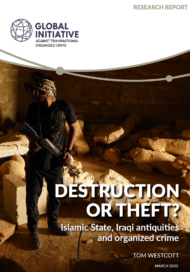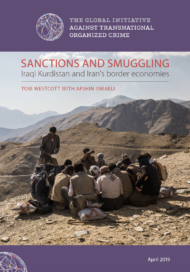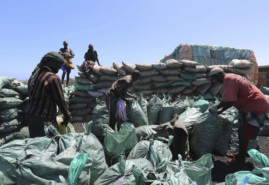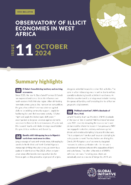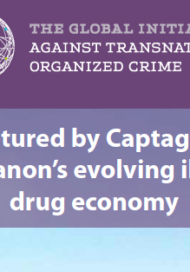Posted on 30 Mar 2020
The Islamic State (IS) occupied territory in Iraq from mid-2014 to mid-2017 and, at its height, controlled almost a third of Iraq’s land mass and had dominance over 4 500 historical sites. In 2015, less than a year after seizing control of the northern Iraqi city of Mosul, IS released video footage showing militants smashing up priceless ancient statues in Mosul Museum and blowing up the Assyrian site of Nimrud, prompting worldwide condemnation.
Although militants claimed they were destroying non-Islamic heritage, Iraqi archaeology experts say these acts were carried out largely to conceal extensive looting of valuable artefacts to help fund their new ‘state’ and associated terrorist activities.
This report examines evidence of looting by IS in and around northern Iraq’s Nineveh governorate. Considering claims that IS not only stole exhibited Iraqi antiquities, but also carried out illicit excavations to plunder new, undiscovered treasures, the report re-evaluates the organization’s
self-proclaimed ideological destruction – in reality, organized looting for profit – as an example of 21st-century organized crime.
The report also considers evidence of the onward flow of stolen Iraqi antiquities, and seeks to establish the most likely routes along which stolen artefacts were moved from a terrorist-occupied swathe of territory into neighbouring countries. It considers how IS terrorists transferred artefacts to other organized criminal networks, en route to long-term storage facilities, collectors and global marketplaces.
The demise of IS as a territorial entity, combined with its well-publicized destruction of heritage, means this topic has, by 2020, largely fallen off the radar. However, with countless artefacts from Nineveh still missing, and Iraqi archaeology experts alleging that IS members excavated important historical sites for their treasures, some of these plundered antiquities are now moving through different rungs of organized transnational criminal networks as they head towards collectors of global antiquities and other marketplaces, rendering this an ongoing organized crime.
This report also highlights the need to raise awareness of such thefts in an effort to ensure that global collectors and auction houses are alert to Iraqi antiquities of potentially suspect provenance and with links to terrorist activities entering the global antiquities marketplace in the forthcoming years and decades.
